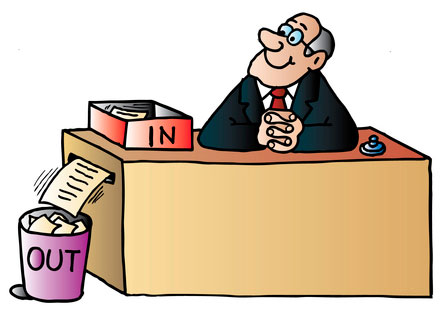Dues check-off, on the campus and in the workplace

Angus Johnston over at StudentActivism has some great analysis and background to Ray Glass' essay on student government I posted not too long ago. Check it out.
I'd like to push back a bit on his dues discussion in particular though (so go read it if you haven't yet).
When Ray wrote that dues "have probably done more to facilitate their entrenchment, removal from rank and file, and conservative policies" I found that rather spot-on. I don't think he meant "entrenchment" in the sense of union density in the economy, which at this point is probably the furthest from "entrenched" without being snuffed out entirely. I believe he meant entrenched in the sense that the union bureaucracy was immovable, even by its own rank-and-file. (For example, it's very hard to disaffiliate with a union federation that can fight back with a pile of your own dues money.)
Looking through history, organizers doing the actual work of building the labor movement and winning victories weren't the ones advocating for dues check-off (or even standing contracts). They were almost always imposed from above, at the very highest levels. The IWW actually still holds dues check-off opposition as one of its core rules. Tom Wetzel, writing on the rise of the union ("closed") shop (which in many cases arose in direct opposition to what the workers wanted) notes:
The "open shop" situation of the CIO unions in the late '30s meant that local union officials and activists were in the position of having to justify support for the union every day if they wanted to maintain rank-and-file support and dues income. Thus, "grievance battles were the order of the day," writes Lichtenstein(3), "and local officers went about their jobs in an aggressive and energetic manner. Although all SWOC contracts formally prohibited strikes for the duration of the contract, a form of guerrilla warfare nevertheless continued in the mills."
Wetzel goes on to explain how a combination of the Red Scare and Roosevelt's demand for wartime labor discipline gave union bigwigs the opportunity to drastically undercut the labor movement's fighting spirit.
While dues check-off certainly a way to increase a union's coffers, and that allows it to more easily get things done, it's absolutely a conservatizing force that allows the establishment of a labor aristocracy in the first place. The kind of conservative business unionism that has particularly characterized the national labor movement over the past 2-3 decades, best personified in Andy Stern's rule at SEIU, would have been impossible without a guaranteed, no-strings-attached flow of funds upward. So we end up with SEIU bureaucrats publicly lobbying for single payer healthcare and EFCA, but internally squashing insurgent locals and ignoring the wishes, requests, and demands of actual workers on the ground. That's the kind of conservative tendency that Glass warns us about.
And so we see that when an organization's bureaucracy has become calcified and disconnected from its members over the years, thanks to guaranteed revenue, removal of that guarantee can be a death sentence. Grassroots, direct democracy is like a muscle — when a union all of a sudden faces Right-to-Work, or when a student association has its dues frozen by administrators, we see that muscle has atrophied so much that the organizations often collapse under their own weight.
As labor historian Staughton Lynd put it,
The usual understanding, favored by U.S. labor policy, is that when a union is recognized it becomes the exclusive representative of workers in that bargaining unit. Such recognition puts the union in a position to have management automatically deduct dues from the workers’ paychecks, the so-called “dues check-off.” Workers interviewed in the 1960s and early 1970s who had experienced the self-organization of workers in the 1930s mentioned this most frequently as the reason that “your [watch]dog don’t bark no more.”
Like most unions, student governments are handed a large pot of money at the beginning of the year without necessarily having done anything to actually earn it — regardless of whether the last election had 90% turnout or 2%. Every campus and university system is different, and we shouldn't necessarily take a purist approach to dues collection (Ray Glass himself, as Angus points out, was rather pragmatic on this issue in practice). That being said, understanding the conservative and bureaucratic tendencies that automatic dues can engender is crucial to avoiding the pitfalls that so many fighting organizations inadvertently run headlong into.